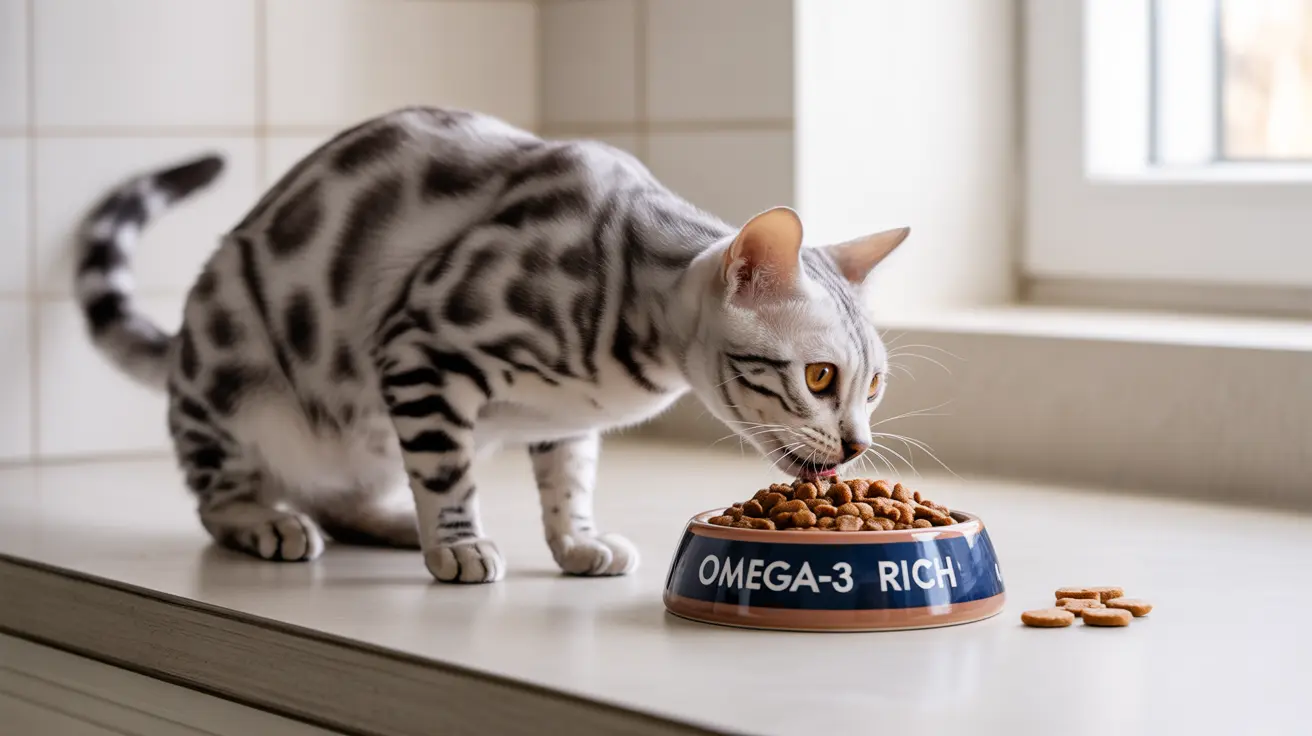If your cat suffers from inflammatory conditions like arthritis or IBD, choosing the right anti-inflammatory cat food can make a significant difference in their quality of life. Research shows that dietary choices play a crucial role in managing chronic inflammation in cats, potentially alleviating symptoms and improving overall health.
In this comprehensive guide, we'll explore how specific ingredients and dietary strategies can help reduce inflammation in cats, and what you should look for when selecting anti-inflammatory cat food for your feline friend.
Understanding Inflammation in Cats
Chronic inflammation in cats can manifest in various ways, from obvious joint pain to subtle digestive issues. This ongoing inflammatory response often underlies common feline health conditions such as inflammatory bowel disease (IBD), arthritis, and obesity-related problems.
The food your cat eats can either fuel or fight inflammation. Many commercial cat foods may actually contribute to inflammatory responses, particularly through processed proteins and imbalanced omega fatty acid ratios.
Key Anti-Inflammatory Ingredients for Cats
Omega-3 Fatty Acids
Omega-3 fatty acids are powerful anti-inflammatory agents that can help reduce chronic inflammation in cats. The best sources include:
- Fish oil (particularly from wild-caught cold-water fish)
- Krill oil
- Green-lipped mussel extract
Natural Anti-Inflammatory Supplements
Several natural supplements have shown promising results in reducing feline inflammation:
- Turmeric (curcumin)
- Green tea extract
- Marshmallow root
- Medicinal mushrooms
Choosing the Right Anti-Inflammatory Diet
When selecting anti-inflammatory cat food, look for products that feature:
- High-quality, easily digestible protein sources
- Limited ingredients to minimize potential allergens
- Added omega-3 fatty acids
- Natural anti-inflammatory ingredients
- No artificial preservatives or additives
Implementation Strategy
Transitioning to an anti-inflammatory diet requires careful planning and patience. Start with these steps:
- Consult your veterinarian before making dietary changes
- Transition gradually over 7-10 days
- Monitor your cat's response to the new diet
- Keep a symptom journal to track improvements
Frequently Asked Questions
What are the best anti-inflammatory ingredients to look for in cat food to help manage chronic conditions like arthritis or IBD?
Look for omega-3 fatty acids from fish oil, green-lipped mussel extract, and natural anti-inflammatory ingredients like turmeric and green tea extract. Quality protein sources and limited ingredients are also important for managing inflammatory conditions.
How can omega-3 fatty acids in a cat's diet reduce inflammation, and which sources are most effective?
Omega-3 fatty acids work by reducing inflammatory markers in the body. The most effective sources are fish oil from cold-water fish, krill oil, and green-lipped mussel extract. These sources provide EPA and DHA, the most beneficial forms of omega-3s for cats.
Are natural supplements like turmeric and green-lipped mussel safe and beneficial for cats with inflammatory issues?
Yes, when properly dosed and administered under veterinary supervision, these supplements can be safe and beneficial. Green-lipped mussel provides both anti-inflammatory omega-3s and joint-supporting compounds, while turmeric has proven anti-inflammatory properties.
How should I gradually change my cat's diet to prevent inflammation-related flare-ups or weight problems?
Transition to new food over 7-10 days by gradually increasing the proportion of new food while decreasing the old. Start with 25% new food, increasing by 25% every few days while monitoring your cat's response.
Can hypoallergenic or limited ingredient cat foods help reduce food-related inflammation and allergic reactions in cats?
Yes, hypoallergenic and limited ingredient diets can help reduce inflammation by eliminating common allergens and providing easily digestible proteins. These diets are particularly beneficial for cats with food sensitivities or IBD.
Conclusion
Choosing the right anti-inflammatory cat food is a powerful way to support your cat's health and manage chronic conditions. By focusing on quality ingredients, proper supplementation, and careful transition periods, you can help reduce inflammation and improve your cat's quality of life. Always work with your veterinarian to develop the most appropriate dietary plan for your cat's specific needs.






